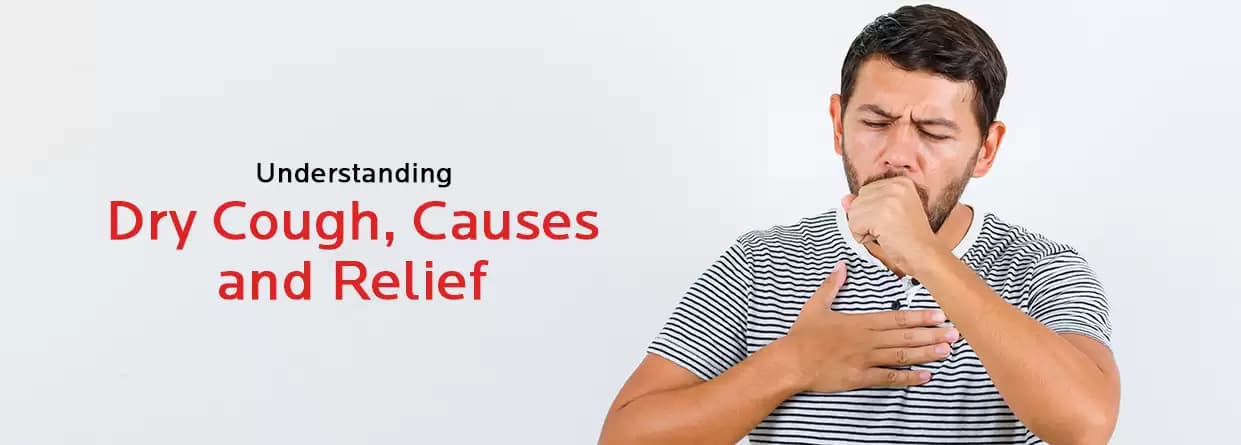
A dry cough is different from a productive cough and doesn’t form mucus or phlegm. It is usually determined by the feeling of a tickle and scratchy sensation in the throat.
Tired of unwanted and irritating dry coughs? Well, you aren't the only one, a lot of people experiencing the same problem go through the same feeling. A dry cough is one of the most common ailments that many of us experience once in a lifetime or have already experienced at some point. A dry cough is not like a productive cough that forms mucus. It leaves a constant feeling of tickle and scratchiness in the throat.
If you are anxious about a dry cough and it doesn’t let you sleep at night comfortably, then don’t worry. In this blog, you will find a solution to your problem.
We will involve a comprehensive discussion on the causes, symptoms, and probable remedies for this condition. This blog offers you improved insights that you need to know and will also assist you to manage the constant urge to cough.
It is important to know that a dry cough can be an indication of an underlying condition; if it is not going away, then make sure to book your appointment with pulmonologists in Kolkata at the Calcutta Medical Research Institute. They have the most experienced and highly skilled professionals. Kindly note that the information given in this blog is entirely research-based and doesn’t interfere with the consultation of a doctor.
A dry cough is different from a productive cough and doesn’t form mucus or phlegm. It is usually determined by the feeling of a tickle and scratchy sensation in the throat. If you aren’t aware of the causes, then there can be several factors like cold or flu infections, irritants like sand or dust, GERD, and some medications. If a dry cough is persistent and followed by other symptoms, it is better to get in touch with a healthcare expert for proper diagnosis and treatment.
Dry cough is often determined by the following symptoms:
You must know that a dry cough can be a sign of an underlying condition, hence you must not delay your appointment with a medical professional if it doesn’t go away.
Dry cough is caused by different factors and is often can be an indication of an underlying disease or condition. For your enhanced comprehension here are different dry cough causes:
To determine the cause of a dry cough, the doctor will often begin the process of diagnosis by asking about your symptoms, and clinical history. Additionally, the doctor will involve performing a physical evaluation. The doctor will order tests to confirm the diagnosis which includes:
Dry cough treatment begins with treating underlying causes and varied triggers. Here are the treatment options for dry cough:
There are dry cough remedies that can help you with improving your symptoms. Here are these remedies:
There are many conditions that might lead to a dry cough. If your cough is dry, it might go away if you timely determine and treat the underlying condition. You can involve using home remedies as it will help in soothing dry coughs. Coughing can lead to lung inflammation and air passages, causing chest tightness. The symptoms must improve when the cough is cleared. There are rare cases when a dry cough might cause serious health issues. You must visit a pulmonologist expert if the cough is constant and unexplained.
Yes, a dry cough is a symptom of corona
Dry cough at night occurs due to certain conditions such as acid reflux and gastroesophageal reflux disease.
Written and Verified by:

Dr. Raja Dhar is the Director & Head of Pulmonology Dept. at BM Birla Heart Hospital and CMRI Hospital, Kolkata, with over 27 years of experience. He specializes in interstitial lung disease, asthma & allergy, COPD, sleep medicine, advanced lung function services, interventional & diagnostic pulmonology, rare stroke & orphan lung diseases, and all disciplines of respiratory medicine.
© 2024 CMRI Kolkata. All Rights Reserved.